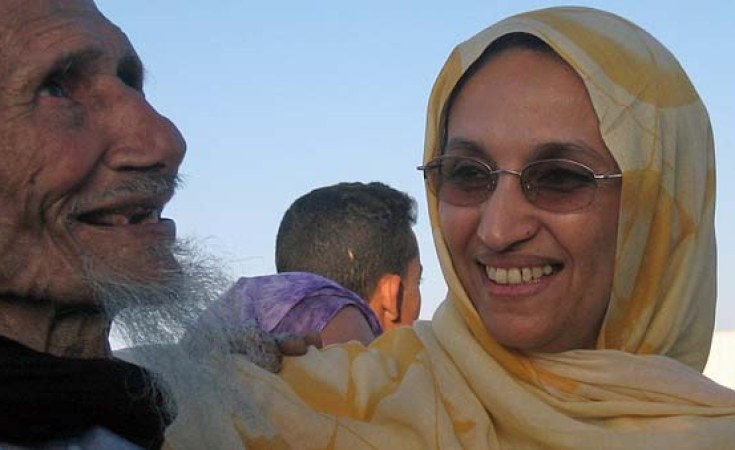Dar es Salaam — In the wake of U.S. Secretary of State Hillary Clinton's meeting with Moroccan King Mohammed VI last week, a prominent human rights activist was detained on her arrival in Western Sahara, which Morocco controls.
Aminatou Haidar was held overnight Friday and deported to Spain's Canary Islands, after stating on Moroccan entry forms that Western Sahara was her country of residency. Saharans have been locked in a struggle with Morocco since 1975, when former colonial ruler Spain precipitously withdrew under pressure from the Polisario Front independence movement. Morocco seized the phosphate-rich territory shortly afterwards.
Polisario suspended armed conflict against Moroccan control in 1991, and peace talks under United Nations auspices have dragged on ever since. U.S. Ambassador Christopher Ross, the Secretary General's special envoy, has been working to start a possible fifth round of negotiations.
When Haidar was detained, she was returning home after receiving the Civil Courage Prize from the Train Foundation in New York on October 21. She was awarded the Robert F. Kennedy Human Rights Award last year, The International Foundation for the Protection of Human Rights Defenders website lists as among her other recognitions: the 2007 Silver Rose Award (Austria), the 2006 Juan Maria Bandres Human Rights Award (Spain), and nominations for the European Parliament Sakharov Prize in 2005, for the Amnesty International USA's Ginetta Sagan Fund Award, and for the 2008 Nobel Peace Prize.
Morocco 's invasion of Western Sahara forced refugees to flee to camps along the border in neighboring Algeria. Now numbering some 160,000, the refugees subsist partly on United Nations rations. A generation of children has grown up in the camps, but many have attended special programs in countries such as Spain and Norway, where activist NGOs have supported Polisario's calls for an independent referendum to determine the territory's future.
The African Union has accepted the Saharan-declared state as a full member, prompting Morocco to withdraw – making it the only nation on the African continent not belonging to the pan-African organization. Over 45 countries have also recognized the Saharan state.
The visit of Secretary Clinton to Morocco has stirred renewed controversy over U.S. policy, with the Moroccan American Center for Policy - a registered lobby group for the Moroccan government - hailing Clinton's remarks during a press conference as supporting Morocco's plan for "autonomy" for Western Sahara under Moroccan sovereignty. In the past, while leaning towards Morocco as, first, a cold-war ally and, subsequently, an ally against terrorism, successive U.S. administrations have preserved a careful verbal neutrality.
Although Clinton said that U.S. policy has not changed, human rights groups are expressing concern at what they see as a lack of pressure to resolve the issue peacefully, particularly as Morocco has stepped up a publicity campaign in Europe and North America amid new crackdowns in the territory. The Robert F. Kennedy Foundation, which issued a statement calling for Haidar's release, says that h er arrest "follows a spate of recent arrests and confiscation of the travel documents of several Sahrawi activists by Moroccan authorities" and says seven Sahrawi activists who visited Sahrawi refugee camps in Tindouff, Algeria in last month face charges before a military tribunal.


